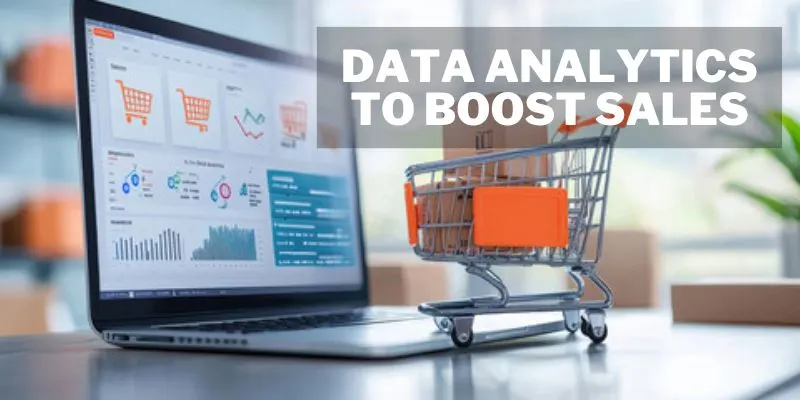
E-commerce companies need to do more than just provide excellent products in today’s competitive digital market. To keep a competitive advantage, companies are increasingly using data analytics to boost sales, improve customer experience, and enable better business decision-making.
If you want to build a career that empowers businesses with such insights, consider enrolling in a Data Analyst Course in Mumbai at FITA Academy to gain the skills needed for this growing field. Let’s explore how e-commerce businesses are using data-driven insights to drive revenue and stay competitive.
Understanding Customer Behaviour
A significant benefit of data analytics in e-commerce is the capacity to gain insights into customer behaviour. Brands collect data from browsing patterns, purchase history, and customer feedback. By analysing this data, businesses can identify what customers are looking for, how they interact with the site, and what influences their buying decisions.
For example, if a customer often browses athletic shoes but never completes a purchase, targeted offers or product recommendations can nudge them toward conversion. This tailored method enhances the customer experience and boosts the likelihood of making a sale.
Personalisation at Scale
Personalisation is no longer a luxury; it’s an expectation. E-commerce analytics allows brands to deliver personalised product recommendations, email campaigns, and promotions. These tailored experiences are built using customer segmentation, which groups buyers based on behaviour, location, preferences, and more.
When shoppers receive content and offers that match their interests, they are more likely to convert. Personalised emails, for instance, have significantly higher open and click-through rates compared to generic ones.
Optimising Pricing and Inventory
Dynamic pricing is another powerful use of data analytics in e-commerce. By monitoring competitor prices, demand trends, and inventory levels, brands can adjust their prices in real time to remain competitive and profitable. Analytics also helps in inventory management, ensuring that popular items stay in stock while slow-moving products are identified early. This reduces waste, avoids stockouts, and improves overall operational efficiency. All of these factors contribute to stronger sales performance. If you want to master these skills and advance your career, consider enrolling in a Data Analytics Course in Kolkata to gain hands-on experience and industry-relevant knowledge.
Enhancing Marketing Campaigns
Marketing without data is like flying blind. With analytics, e-commerce brands can measure the effectiveness of their campaigns across different channels, from email to social media to search ads.
They are able to monitor important indicators, including return on ad spend (ROAS), conversion rates, and customer acquisition costs. By identifying what works and what doesn’t, brands can refine their strategies and focus on high-performing channels. Better outcomes and more economical marketing expenditures follow from this.
Reducing Cart Abandonment
Abandonment of shopping carts is a frequent problem in online retail. Data analytics can help identify when and why customers are leaving before completing a purchase. Whether it’s high shipping costs, lack of payment options, or complicated checkout processes, understanding these barriers enables brands to take corrective action.
For example, a brand might notice that users frequently abandon carts during mobile checkout. This insight could lead to streamlining the mobile interface or offering mobile-exclusive discounts, which can result in improved conversion rates.
Driving Long-Term Customer Value
Boosting sales isn’t just about one-time purchases. It’s also about increasing customer lifetime value (CLV). With data analytics, brands can track how often customers return, what they buy next, and how long they stay engaged.
This helps in creating retention strategies, loyalty programs, and re-engagement campaigns that keep customers coming back. A loyal customer is far more valuable than a first-time buyer, and analytics helps identify and nurture these relationships.
E-commerce success today relies heavily on the smart use of data. From understanding shopper behaviour to personalising experiences and refining marketing efforts, data analytics plays a vital role in boosting sales. Brands that invest in the right analytics tools and strategies are better positioned to meet customer expectations, outperform competitors, and achieve sustainable growth. If you want to develop these in-demand skills and shape the future of e-commerce, enrolling in a Data Analyst Course in Pune can help you gain practical knowledge and advance your career.
By turning data into action, e-commerce businesses can do more than just sell. They can thrive.
Also check: What Are the Key Benefits of Using Data Analytics?
